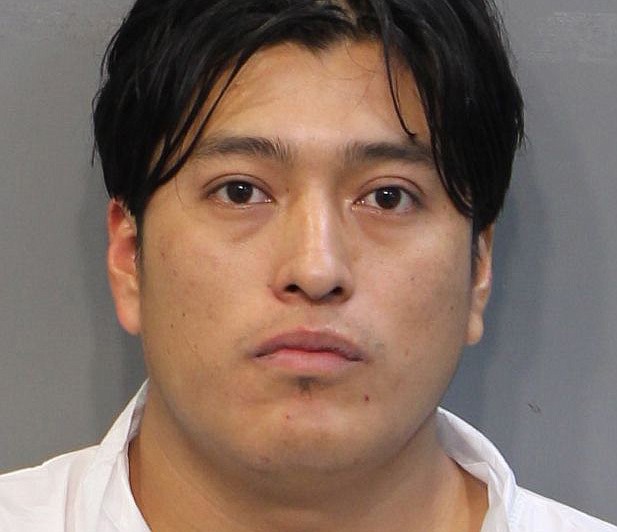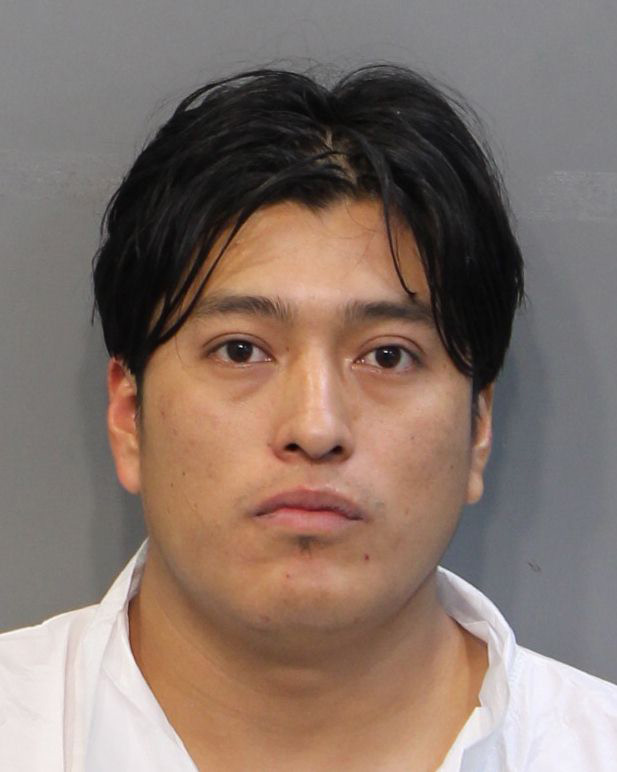After deliberating about an hour and a half on Friday, a Hamilton County jury found a 32-year-old man guilty of second-degree murder in the 2016 stabbing death of his wife.
Zacarias Salas-Rufino will be sentenced on the Class A felony on July 25 in Hamilton County Criminal Court in connection with the death of Yessica Ruiz, his 29-year-old ex-wife and mother of their two children. Salas-Rufino, who also goes by Carlos Delposo, will remain in custody in the meantime. He faces 15-60 years in prison for the offense.
Jurors returned their verdict around 11:20 a.m. after attorneys made their closing arguments. Since Tuesday, when Salas-Rufino's trial began, prosecutors said they had eyewitnesses and forensic proof that showed Salas-Rufino stabbed his ex-wife about 25 times while intoxicated in their Navajo Drive home in the early morning hours of Sept. 26, 2016.
They reiterated that argument Friday, pointing to the alleged domestic violence and cheating that characterized the relationship in the months before the fatal incident. Assistant District Attorney Brian Bush said eyewitnesses on Navajo Drive heard arguing around 7 a.m., a woman saying "Carlos no," and a loud boom. Moments later, Bush said, a neighbor heard Ruiz wailing and saw her run outside, where she bled in the front yard surrounded by the couple's two children.
"We have to show he committed a killing knowingly, that he acted with intent to take the life of someone else," Bush told jurors. Bush added that a medical examiner's report showed Ruiz had bled so much from one of her slashed arteries that she was brain dead by the time she died days after the incident.
Salas-Rufino's attorney, Assistant Public Defender Erinn O'Leary, countered that prosecutors didn't have definitive proof he committed the crime. She argued that Salas-Rufino's shirt from the night in question had little blood on it, that the knife didn't have anyone else's DNA on it because police stopped investigating once they found Salas-Rufino at the scene, and that Ruiz's car was no longer at the scene when police arrived.
O'Leary encouraged jurors to question the state's evidence and pointed to a 911 call Ruiz made in the spring of 2016, months before her death. While living at a home on Cloudland Trail in the Brainerd area, Ruiz called the police because she was afraid, possibly of another man, O'Leary said. And on that day, the defender added, she called Salas-Rufino for help.
O'Leary added that second-degree murder requires knowingly killing someone, which she questioned throughout the trial by pointing out that first responders, police officers and medical workers noted Salas-Rufino seemed out of his mind at the scene. A doctor at Parkridge Medical Center, where he was taken, ultimately diagnosed Salas-Rufino with cocaine- and methamphetamine-induced delirium.
But in their second and final argument to jurors, prosecutors said Salas-Rufino still was responsible for his actions. Executive Assistant District Attorney Cameron Williams said the defense also failed to show someone else was involved in Ruiz's stabbing.
"Why the two stories?" Williams asked. "'He didn't do it, but hey jury, if you think he did, he didn't know what he was doing.' Why two stories? Because neither one of them are supported by the proof. No one else had the motive to do it."
Contact Zack Peterson at zpeterson@timesfreepress.com or 423-757-6347. Follow him on Twitter @zackpeterson918.


